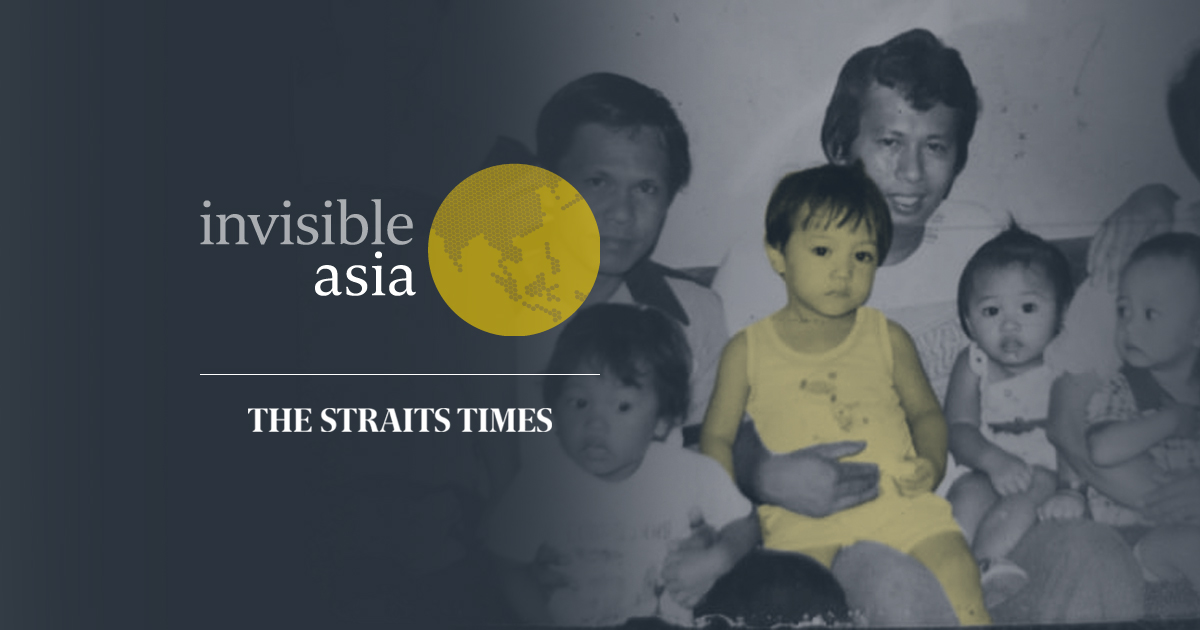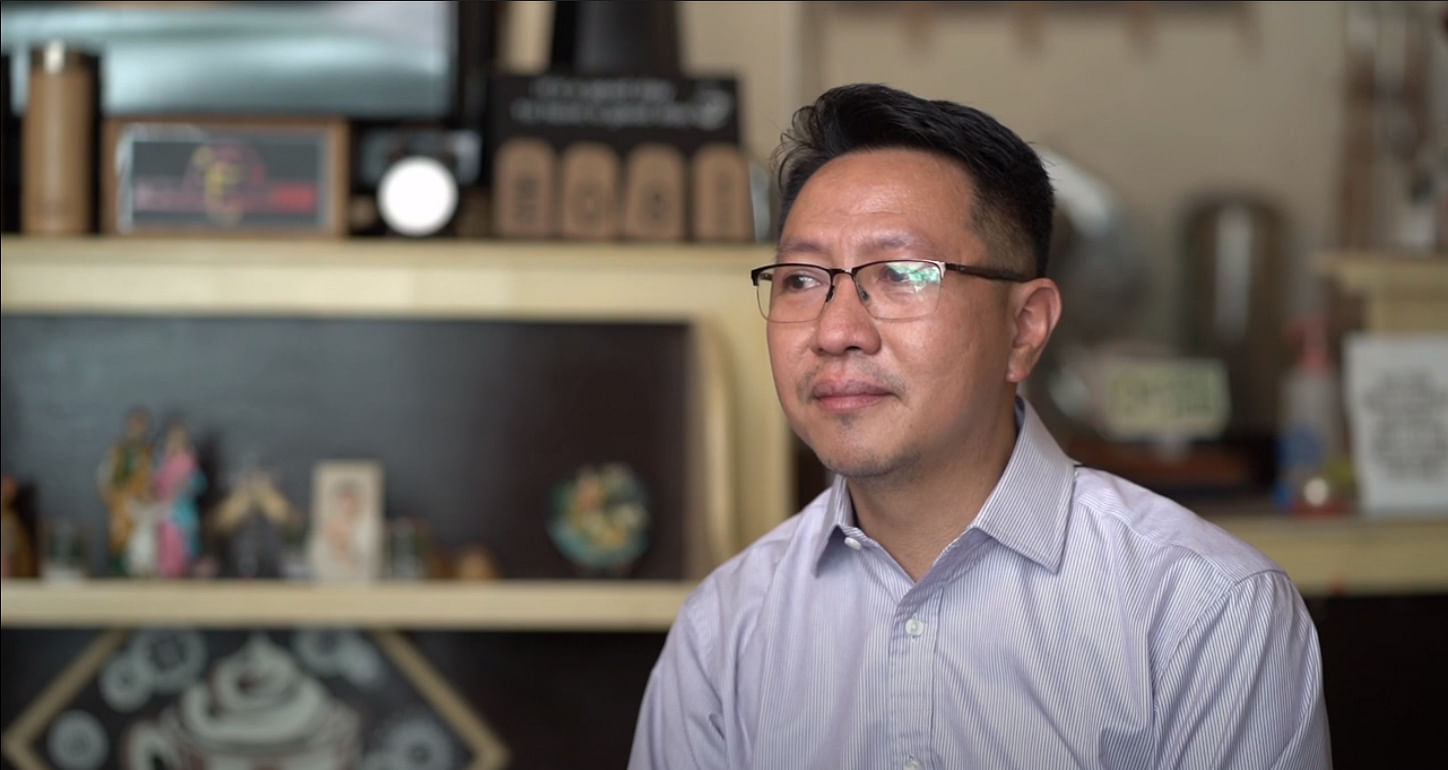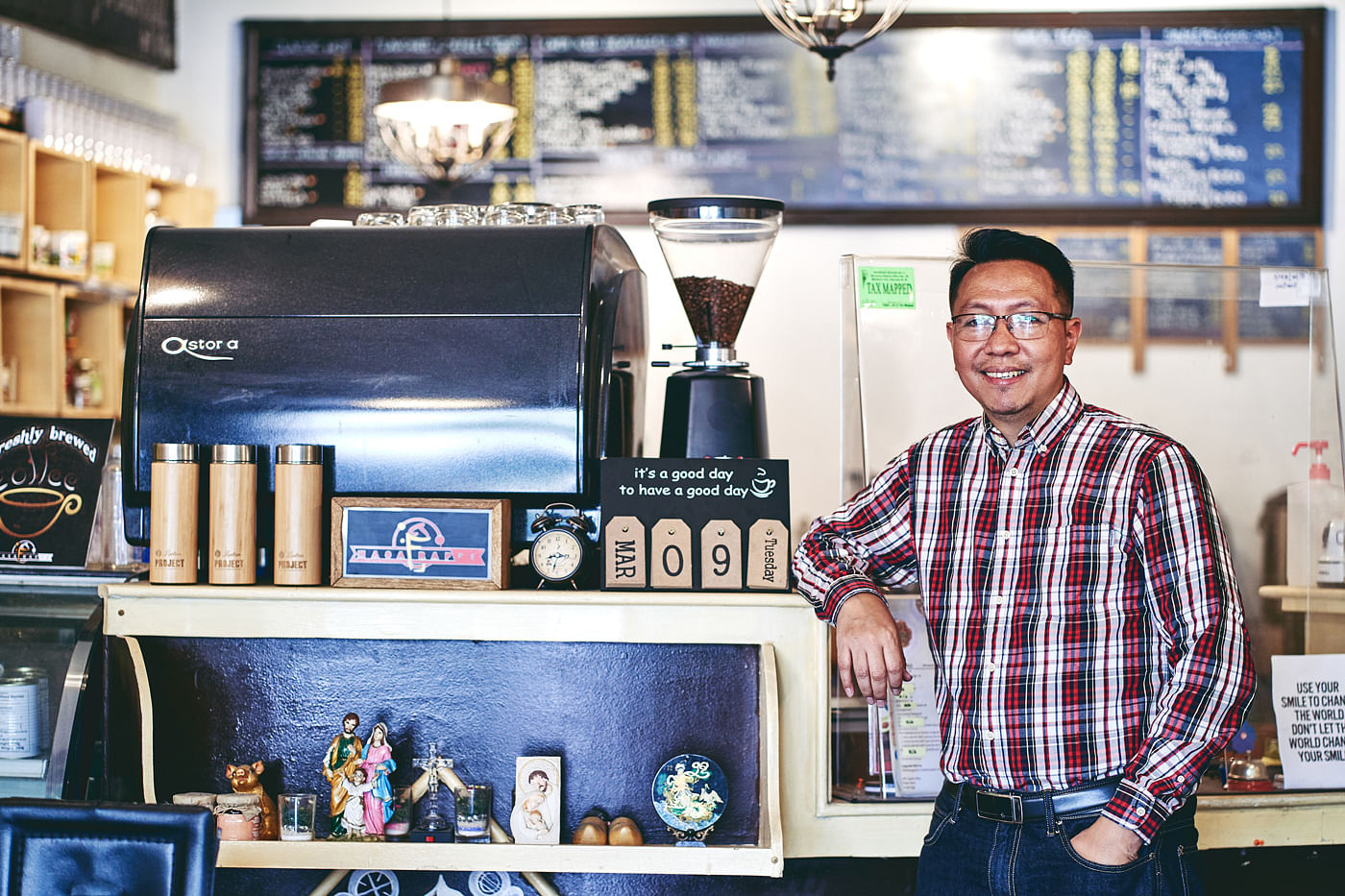‘I was afraid I’d be rejected if I told people of my abuse’
Children in the Philippines are particularly vulnerable to sexual abuse and domestic violence, and the consequences can last well into their adulthood, as in the case of one man who is still fighting his demons.
Sign up now: Get insights on Asia's fast-moving developments

MANILA - He was just five years old. There was a neighbour from a few doors down, a boy about six years older – someone he looked up to like an older brother. One day, the boy invited him over to his house. With no one else around, the older boy pulled down his pants and began to touch himself.
Mr Erick Reyes, now 44, recalled how his younger self, confused and curious, just looked on. This happened again on another day. Again, he just watched.
The third time, the boy asked young Erick to perform a sexual act on him. Diffident, the young boy did as he was told.
“I didn’t want to do it. But I remember longing for touch, just to be caressed, just to be embraced,” Mr Reyes recalled.

Days later, he was sitting at a staircase when the boy came bounding by. Thinking they had something intimate going on, young Erick lay down on a step. “I was willing to give my all to him,” he said.
But the older boy spat on him.
“I felt hurt. I felt guilty. So, I blamed myself the whole time.
“I never told my mother, I never told anyone what happened. I was afraid. I was afraid that they might reject me all the more.”
Mr Reyes had already known rejection at that young age. His father, a seaman who was home for only two to three months a year, was either distant or menacing.
“Even when he was around, he was not really there because he seldom spoke. Anyway, we didn’t like having him around. We grew up hating him because he would beat us up,” he said.
It did not take much for his father to be provoked. Some roughhousing by his children or sensing defiance from them, and he would pull his belt from his waist or from wherever it was hanging, roll the leather part around his hand and hit them with the metal buckle shaped like a ship’s anchor.
“I remembered shaking uncontrollably from the pain,” said Mr Reyes.
Once, he recalled his mother running to shield him with her body when the beating got so bad. Years later, when he was much older and bigger, he would be the one using his body to protect his mother from his father’s beatings.
Silenced by shame
Mr Reyes’ early experience with sexual abuse and domestic violence led to years of struggling with his gender identity, addiction to sex, and risky, self-destructive behaviour to feed that craving.
It is the same story for millions of boys in the Philippines.
According to the National Baseline Study on Violence against Children, one in four children in the Philippines is sexually abused – boys (28.8 per cent) more often than girls (20 per cent).
However, child rights advocates say the real numbers are hidden behind a curtain, and that curtain has to be lifted if the real monster and the misery it leaves in its wake are to be revealed and confronted.
Often, the victims themselves are not sure if they were victimised or were, in fact, willing participants – which adds to their feelings of shame.
“It is sad because the children cannot identify if their sexual experience was abusive or not… If there is resistance, it is just a gut feel. They feel something wrong happened to them, but in their mind, they think it was nothing,” said Professor Zenaida Rosales, executive director of the Centre for Prevention and Treatment of Child Sexual Abuse.
The children do not know because there is little in the way of raising awareness or providing education about sex.
That is largely because of the outsize role religion plays in the predominantly Catholic nation.
The church has been pushing back against efforts by liberal activists to institutionalise sex education in schools and communities. It sees these efforts as stealthy means to sanction promiscuity among children, teens and young adults, push for artificial birth control and divorce, and legitimise same-sex unions.
So, while teaching the Catholic faith remains a keystone of education in the Philippines, sex education is reduced to a sub-topic of biology or anatomy.
Prof Rosales said: “In general, there are support structures and services for boys. But they are not clearly contextualised to the struggles and pressures for boys.
“We don’t teach sexuality to all children, boys and girls. Yet, children are sexual beings, especially teenagers. They have so many questions about sexuality, but we have no safe and responsive sexual education in the country.
“They don’t have a healthy environment where they can find somebody to process their questions about sex and sexuality.”
If boys do mention it to someone, it is often to an older male who unsympathetically tells them to forget about it – or even feel lucky they are “already a man”, said Prof Rosales.
“When we told some parents about their sons’ sexual abuse, they said, ‘Never mind, because they are boys… they will not get pregnant’,” she added.
Sometimes, these children are re-exploited because they end up trusting and opening up to another abuser.
They may feel abused but ashamed to speak out and protest. Either way, they feel that the only real choice for them is silence. They become invisible.
When abused boys are told to man up
For boys who went through sexual abuse and domestic violence, the journey to adulthood is often as turbulent.
There are issues with mental health, according to the National Baseline Study, which Prof Rosales co-authored.
Victims often struggle with gender identity and are often confused about their emotions. They always feel alone, unable to find a safe and healthy space where they can process what they are going through.
Some find refuge in online pornography and promiscuity that are often a doorway to HIV and other sexually transmitted diseases.
Some are driven to substance abuse and even suicide.
In many cases, the family is not a refuge at all.
It is there where the boy is first schooled on what it means “to be a man”. It means not complaining or talking, even when you think you may have been violated.
“If you are a boy and you are being abused, it is a sign of weakness and stupidity,” said Prof Rosales.
“Our culture says that to be a boy, you have to be strong, you have to protect yourself all the time, you are to be the hero, not to be rescued.”
In the Philippines, the norms, traditions and expectations – the very idea of manhood – have been entrenched over centuries of cultural grooming. This traces back to when Spain’s militant form of Catholicism became the country’s religion and solidified patriarchy as the norm, according to a study on boys and sexual violence commissioned by the civil society group Family For Every Child.
Men are the breadwinners who protect the home, and women are the homemakers who need protection. A man does not need protection; he must stand on his own.
But this gender dichotomy comes at a price. No one really looks after the boys, and the laws do not extend as much protection for them as with girls.
Rape, for instance, is applicable only to girls and women because it is an offence tied to sexual penetration. But for boys and men, the offence is deemed as sexual assault. Rape is punishable by death; sexual assault, six to 12 years in jail.
Justice delayed, justice denied
Prof Rosales said her group once handled the case of a karate instructor who managed to land a teaching spot at a high school about 10 years ago. He told the principal he had dozens of awards under his belt, and that he was willing to teach for free.
For months, he gave free lessons to more than a dozen boys. Most were 14- or 15-year-olds. Later, he took the boys to resorts outside Manila, supposedly to prepare them for karate tournaments.
There, he molested the boys and instructed them to touch themselves in front of him. There were other sex acts. He told the boys that these were necessary “to strengthen your knees”.
The boys accepted this as fact and thought nothing much about it.
But one of the boys attended a special class with a child rights advocate. When the advocate said that being forced to touch oneself by someone in authority was wrong, the boy stood up and said: “But we do it all the time.”
That led the school to investigate and fire the karate instructor. A class suit was filed against him by the parents of six of the boys. The others decided not to make a big fuss about the whole thing and just move on.
Eventually, the instructor settled the suit and agreed to pay the families, and that was that.
Prof Rosales said the glacial pace of the Philippine justice system is itself a big problem.
While the laws require resolution of child abuse cases within 90 days, most cases can last up to nine years.
“By the time a decision is reached, the boy is already a young adult and no longer has the appetite to see the case through,” said Prof Rosales.
It also does not help that the laws do not provide the same protection for boys and girls.
Help desks for children at police stations are meant for girls. State-sponsored public awareness campaigns on abuse of minors are also mostly focused on girls and women. Even most support groups exist for women who are victims of sexual assault.
Sexual abuse of boys often comes to light only after the victims are caught committing a crime and end up in police precincts.
Child rights activists are pressing for more “gender-neutral” provisions on child abuse in a Bill tackling online sexual exploitation of minors that is currently being debated in Congress.
But that is just half the response.
Prof Rosales said politicians keep talking about creating more laws, but neglect attention to actually enforcing these laws or focusing on pre-emptive responses.
“If we want to bring down the numbers, we should address the root cause. We should be providing mental health services that focus on dismantling stereotypes and narratives,” she said.
‘It’s okay to speak out’
Robbed of his innocence at the age of five, Mr Reyes was left grappling with his prematurely awoken sexuality and sexual identity, and had no one to turn to.
It was that inner conflict that led him to a high school seminary when he turned 12 and a desire to be a priest. He thought a life of prayer and dedication to God would expunge his licentious desires.
But the emphasis on dogma, obedience and discipline made it worse. “I knew I was different from the others because I felt something inside for the other guys,” Mr Reyes said.
But he thought it was an urge he had to suppress because it was wrong.
Soon, he was having so many panic attacks at the seminary that his mother had him see a therapist.
“The panic attacks subsided, but the therapy did not really address the underlying cause,” said Mr Reyes.
He learnt to suppress his compulsions but when he decided priesthood was not really for him, those long-hidden tendencies took the driver’s seat.
One night, after his shift at a fast-food restaurant, he approached a man at a bus stop and picked him up.
That was his first real sexual experience, and he wanted more. So, he started paying male prostitutes and frequenting bars for one-night hook-ups, going to public restrooms for quick sex. It became an addiction, he said.
When he realised he was having one too many brushes with rogues and hustlers, and was spending all his money to satisfy his cravings, he reached out to a small group of men who, like him, were trying to reconcile their gender preference with their faith.
With them, he was finally able to sort out his addiction and pinpoint its cause – the first time he told someone about his childhood abuse.

That set him off on a journey to exorcise the demons from his past. The healing process has not ended, he said.
As an outreach officer at a Catholic university, Mr Reyes is openly gay, single and adheres to the boundaries set by the Catholic Church. He now wants to help other boys who are going through what he experienced.
“I decided to tell or share my story because I have lost a few students to suicide,” Mr Reyes said.
Like him, they had also struggled with having been abused and alienated for being gay.
“They took their own lives because their parents, their families did not accept them.
“This is my way of telling those like me that it is okay to speak out, to be seen,” he added.
Mr Reyes said if he could travel back in time, he would tell his five-year-old self that he has a choice to walk away and that there is nothing wrong with him.
“I would embrace him and tell him, ‘It is okay, we will face your issues, you will be fine’,” he said.


